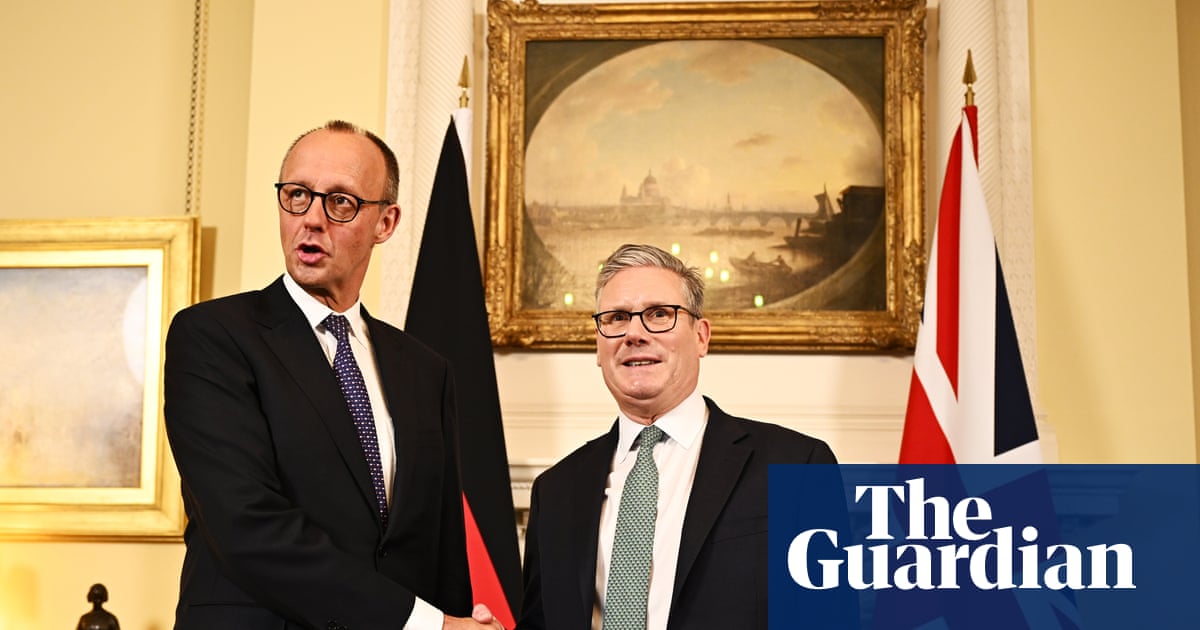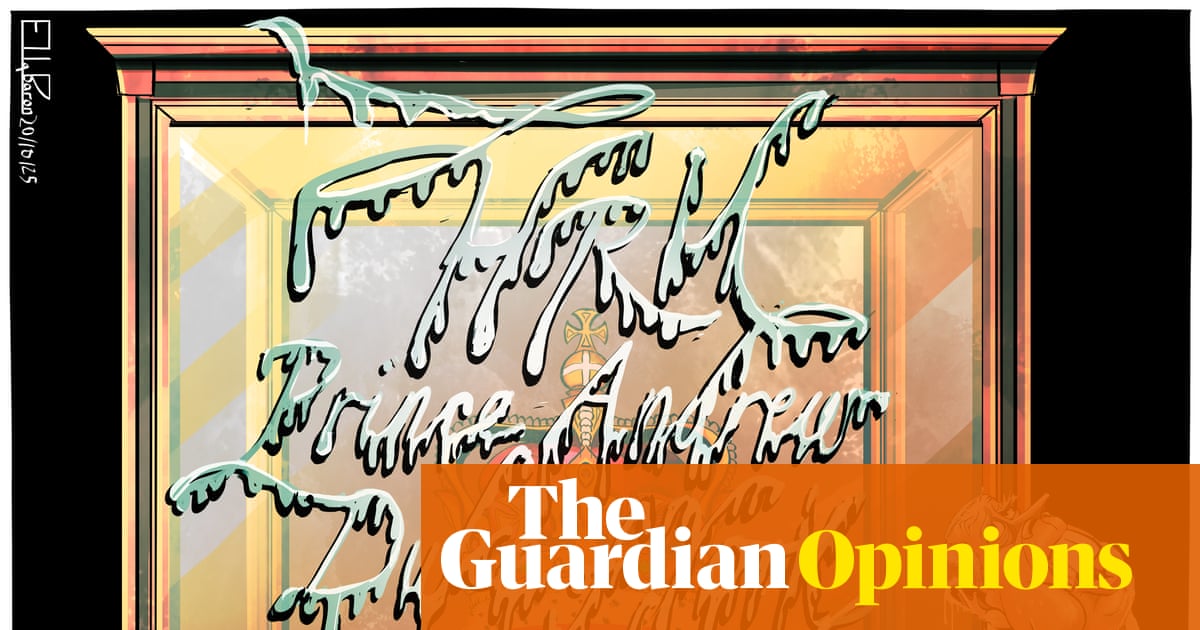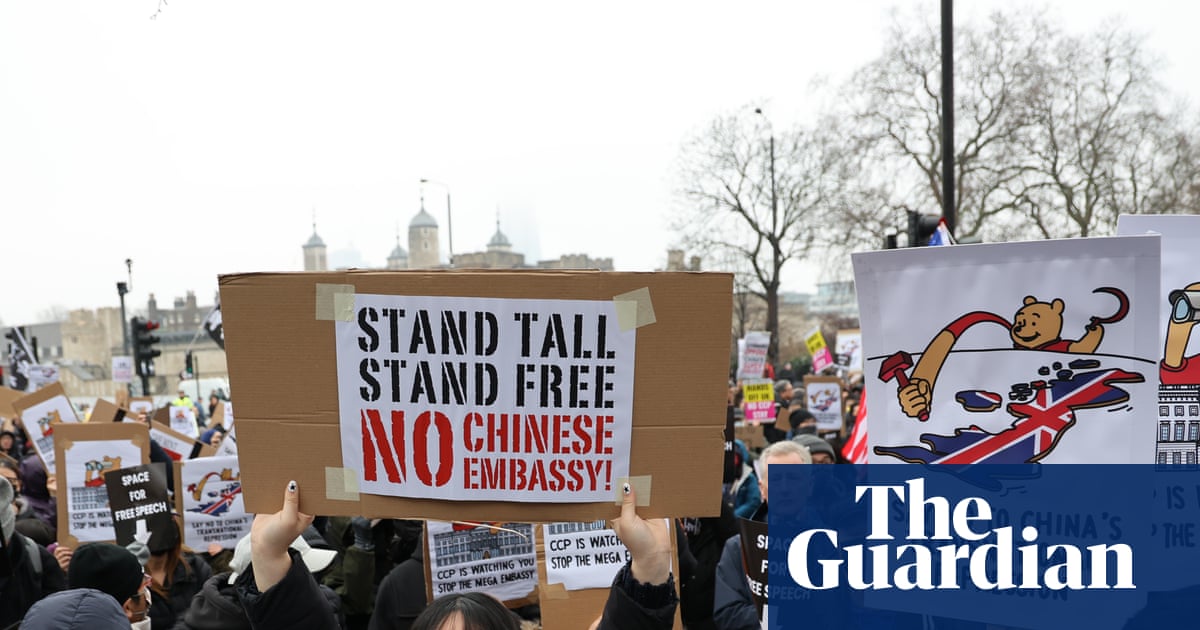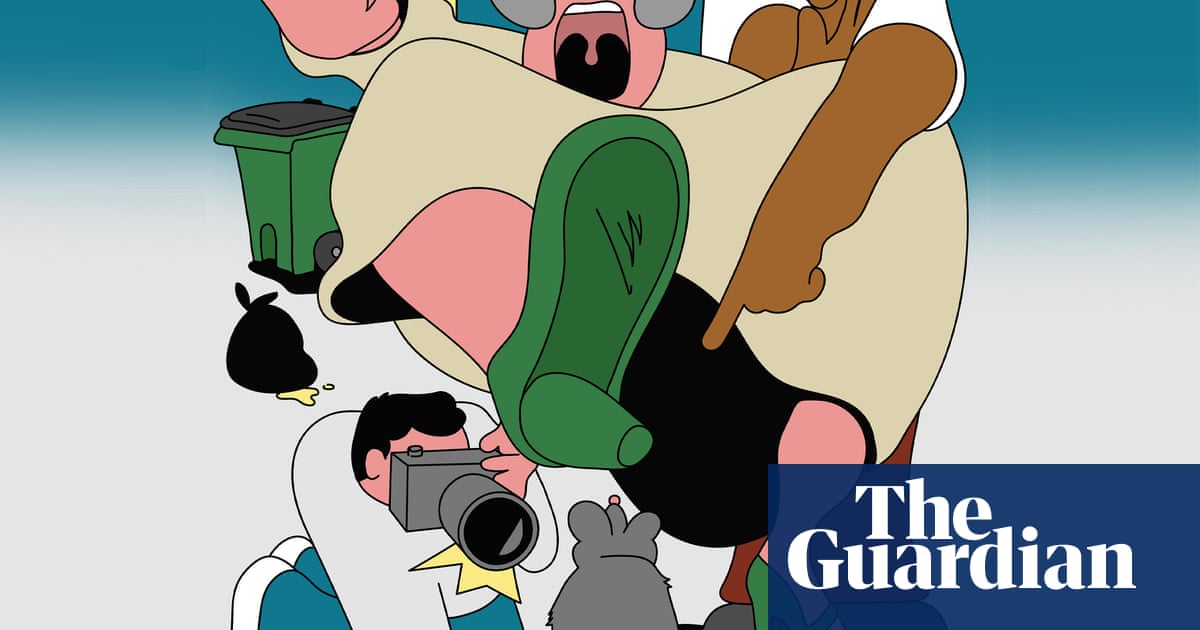Over their mind-boggling 15-year, 27-album career, King Gizzard and the Lizard Wizard have switched gears with the speed and abandon of a stunt driver in a Fast and Furious film. Can you even describe the six-piece as a psychedelic rock band any more?
Their music to date has encompassed metal, folk, jazz and dance music; they have experimented with dense concept records and microtonal tunings, and this year they’ve been touring both an orchestral show and a rave show, alongside residencies in European prisons and amphitheatres.
And in July, King Gizzard made their latest hairpin turn: removing all their music from Spotify, in protest of CEO Daniel Ek’s €600m (A$1.06bn) investment in the AI military tech firm Helsing.
“We have done a lot of different things over the years, but sometimes you just forget that you have free will – you can do whatever you want in these spaces,” says frontman and de facto bandleader Stu Mackenzie over the phone in September. “I don’t particularly want to try to start a movement or something like that – I’m happy if other people join. But for us, it was a decision about our music and a decision about what we think is right and what we think is not right. [We decided] we’re just gonna walk and deal with consequences later.”
He pauses, before adding: “Of which there have not been many … nobody seems to really care too much.”
The move was inspired by Leah Senior, another Melbourne musician who is a close friend and collaborator of the group. “We had seen a couple of others leaving as well, but it was when Leah left, she and I had this one conversation about it – I told her I was really proud of her and I thought it was an awesome thing,” says Mackenzie. “It’s kind of a beautiful thing – you look at people leaving and think ‘That’s really admirable’. I admire the courage to do the thing that is different and also right.”
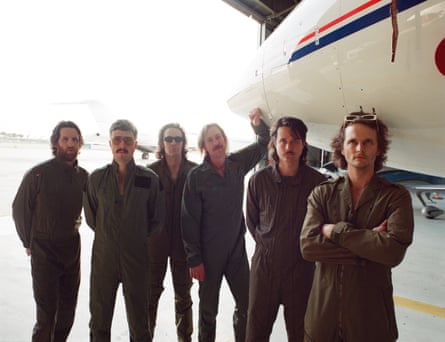
Mackenzie says that the band’s only concern about leaving Spotify was one of accessibility: the world’s largest music streaming platform allows fans to listen for free (with its ad-supported tier) or relatively cheaply (with its premium tier). There are ethical concerns around this model – Mood Machine, a recent exposé of Spotify’s business practices by the reporter Liz Pelly, reveals how heavily this model favours the most popular artists in the world and greatly reduces recorded music income for independent and DIY artists – but proponents of the service, and even some critics, argue it democratises listening.
King Gizzard have a solution for that too: at the same time as removing their music from Spotify, they’ve made their entire catalogue – 27 studio albums, 64 live albums, three EPs and five bootleg compilations – available as a “name your price” download on Bandcamp.
Making the band’s catalogue free, says Mackenzie, “didn’t really feel like a big move” because Bandcamp was already a significant platform for them: the vast majority of their live albums were made available on the platform first; and their 2017 album Polygondwanaland was released into the public domain, with the band encouraging fans to press their own vinyl copies.
“It just felt like what we would usually do – I just thought, well, Bandcamp is actually quite a cool place, and it would be nice if we can lure some people over there [so they can] discover some other amazing music on that platform,” he says. “It’s been a really big part of King Gizzard’s story from the very beginning, and I’m happy for people who listen to our music to spend some more time there.”
Mackenzie says he doesn’t know how much of the band’s income came from Spotify aside from that “it is small”. While some musicians do make significant money from streaming, many working musicians have found more reliable revenue sources in touring, merchandise and vinyl. The band’s music also remains available on competing streaming platforms such as Apple Music and Tidal.
after newsletter promotion

Even so, the idea of leaving Spotify or releasing music for free is likely anathema to many streaming-first managers and labels, who encourage artists to consider themselves as easily marketable products. Mackenzie says that idea makes him “vomit in my mouth a little bit.”
“I know that we are a quote-unquote ‘brand’, I know that. But I fucking hate – that’s not why I’m here. We are serving nobody by carrying on like that,” he says. “I just want to make music with my friends, and I am cognisant enough to know that we need to make some money along the way to keep the gas in the tank – but for the most part, I just want to make music.
“A lot of the decisions that we’ve made along the way that people kind of thought ‘Oh, that’s a bit different’, it’s mostly from that perspective. You put music at the top of the triangle, and then other things fall on from that, and the decisions have been very easy to make along the way.”
Those decisions have led King Gizzard to some enviable, thrilling places: on Friday they are playing a free rave set – in which they foreground synth and dance music – at Melbourne’s 10,000-capacity Federation Square, before embarking on a series of shows with a 29-piece orchestra, first debuted in the US earlier this year. The rave sets and the orchestral sets, as vastly different from each other as they are, represent King Gizzard exactly as they are right now – which, Mackenzie says, is just the point.
“It feels like an open portal into our brains,” he says. “It just is you, right? It’s an auditory manifestation of yourself. It’s what you do when you’re a musician.”
-
King Gizzard and the Lizard Wizard are performing a free rave in Federation Square on Friday 24 October 7-10.30pm with DJ Merve. All their music is available on Bandcamp; pay what you want

.png) 4 hours ago
3
4 hours ago
3


